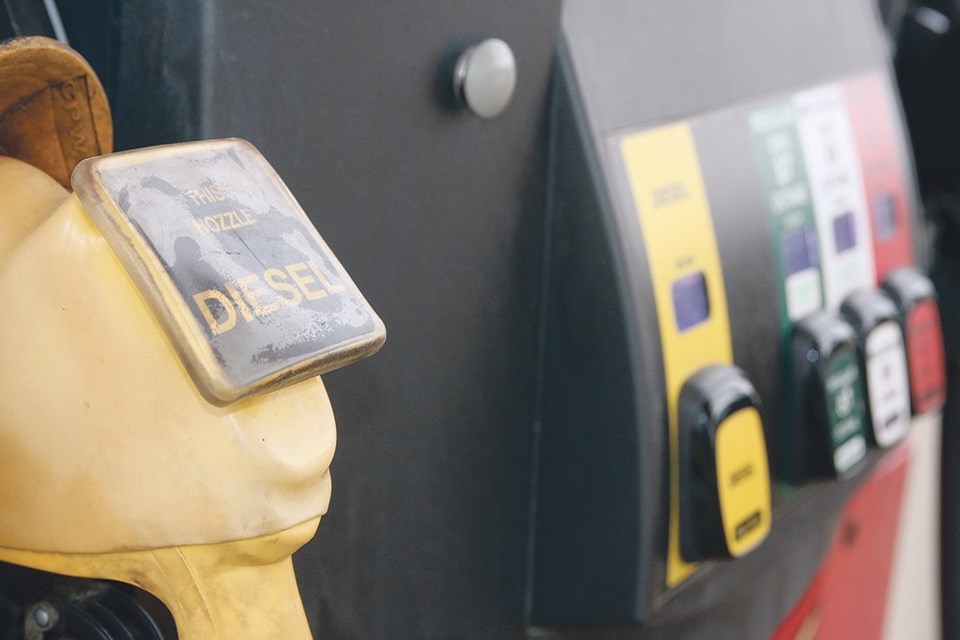WESTERN PRODUCER — There is no reprieve from record-high diesel prices on the horizon, says an analyst.
“We likely will see prices sustained at elevated levels for some time,” said Patrick De Haan, head of petroleum analysis with GasBuddy.
The average price of farm diesel in Alberta in March was $156.42 per 100 litres, up 54 percent from year-ago levels, according to Alberta Agriculture.
The Russian war in Ukraine has been the primary catalyst behind that surge, said De Haan.
Prices have responded to the threat of Russia banning fuel exports to the European Union or EU countries refusing to buy from Russia.
Russia produces a heavier oil that yields distillates, heating oil, jet fuel and diesel fuel.
There are other reasons behind the recent price hike as well, such as the rebound in home building in Canada and the United States and increased truck traffic as supply lines scramble to catch up following COVID disruptions.
“There has been a flurry of economic activity and much of the fuel that powers that is diesel fuel,” said De Haan.
North American supply of diesel has been falling while demand is rising.
The pandemic took down the Come By Chance Refinery in Newfoundland and Labrador.
A fire shuttered the Philadelphia Energy Solutions refinery in Pennsylvania.
And flooding caused by Hurricane Ida led to the closure of the Phillips 66 Alliance refinery in Louisiana.
The upshot is that while there may be occasional price relief over the rest of the year, it won’t last long.
“Prices will remain elevated as long as there is a war in Ukraine,” said De Haan.
Farmers in the United States are dealing with even steeper price increases.
DTN reports that the national average retail diesel price was US$5.56 per gallon on May 13, up 77 percent from year-ago levels.
Diesel inventory in the U.S. is 20 to 25 percent below the three-year average for many of the same reasons mentioned by De Haan.
There are big regional differences. Supplies are half of normal levels on the east coast, while inventories are only down 16 percent by comparison in the Midwest.
A major reason for the shortfall is that European buyers are sourcing diesel from the U.S. in attempts to wean themselves off Russian supplies.
“Starting in late February, we’ve seen exports of diesel really, really jump and they’re staying high,” said DTN energy analyst Brian Milne.
Another factor mentioned in the DTN story is the COVID-related switch to online shopping, which has resulted in more delivery vehicles, like Amazon trucks, that consume diesel fuel.
Jason Schwantz, vice-president of refined fuels at CHS, told DTN the supply problem isn’t going away any time soon.
“The U.S. is short diesel fuel. I don’t really see diesel fuel usage slowing down, so these high diesel prices are going to be around, I think, until fall,” he said.
De Haan said there are no statistics on Canadian inventory levels, so it is impossible to know.




